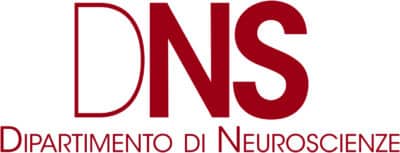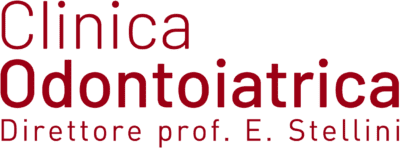

The Second-level Short Specialisation Degree in Paediatric Dentistry and Orthodontics in Childhood and Adolescence trains and completes the preparation of attendees in the dental management in child and adolescent patients, in the fields of diagnosis, prevention and treatment.
The course provides competencies and specific updates concerning the materials, techniques and procedures in the dental prevention, conservative, endodontics, traumatology and surgery fields, including all the aspects of sedation and medical-legal issues in the paediatric age. It also includes an insight on what a paediatric dentist should know and recognize in a small patient, in order to ensure a harmonic development of jaw occlusion and skeletal structures.
The Master’s Degree also trains professionals in dealing with complex cases using simple procedures, and in accompanying the patients throughout their growth, in an overall vision of the evolutionary phases.
The course units of the Second-level Short Specialisation Degree in Paediatric Dentistry and Orthodontics in Childhood and Adolescence involve the following thematic areas:
- Dental management of child and adolescent patients;
- Dental traumatology and relevant interventions;
- Interceptive orthodontics.
By following the Short specialisation degree’s course, attendees will understand the criteria required to formulate a correct diagnosis, define a suitable treatment plan, apply biomechanical knowledge to manage different phases of the orthodontics treatment, choose the best treatment plans for each patient based on their requests and on therapeutic protocols.
The Short specialisation degree includes in-person lessons, seminars, lectures by experts and online live/recorded multimedia content. The learning skills will be tested on a monthly basis, through the professors’ questions.
The Second-level Short Specialisation Degree in Paediatric Dentistry and Orthodontics in Childhood and Adolescence trains professionals in paediatric orthodontics.
Attendees will be able to use the knowledge acquired to treat simple and complex cases, within a multidisciplinary vision of pathologies in childhood and adolescence.
The Short specialisation degree prepares orthodontists for possible collaborations as consultant in dental practices, and trains it for the most common dentistry urgencies in the paediatric age and in interceptive orthodontics.
The Second-level Short Specialisation Degree in Paediatric Dentistry and Orthodontics in Childhood and Adolescence provides training on:
- Reception and approach to children, ortho-paedodontic practice organization principles;
- Oral pathologies in childhood and adolescence;
- Genetic involvement in dental pathologies and syndromes;
- Non-pharmacological behavioural approach to children in dental practices and technical sedation procedures in paedodontic patients: different aspects of the same issue;
- Cariology: from diagnosis and caries assessment to prevention and treatment;
- Nutritional principles and lifestyles in preventing oral pathologies in young patients;
- MIH, EH, HSPM – little-known issues: diagnosis and treatment principles of hypomineralization of primary and permanent dentition;
- Conservative therapy for child and adolescent patients: tips and tricks for direct, semi-indirect and indirect restoration;
- Endodontics in paediatric orthodontics: from deciduous to permanent teeth;
- Consolidate treatment protocols and new endodontic regeneration techniques;
- Dental traumatology. Treatment guidelines and multidisciplinary team to solve complex cases;
- State-of-the-art dental tissue regeneration. A look at the future;
- Paediatric oral surgery;
- Paediatric dental laser and its multiple uses;
- Orthodontic diagnosis and orthodontic semeiotics: how to frame young patients when an orthodontic treatment is required;
- Orthodontic treatment in childhood and adolescence and principles of interceptive orthodontics;
- OSAS and its implications on young patients;
- Medical-legal aspects in paediatric dentistry: from informed consent to medical-legal certifications.
- Sergio Mazzoleni – Master’s Director
- Antonio Luigi Tiberio Gracco – University Coordination
- Patrizia Lucchi – Scientific Director
- Francesco Saverio Ludovichetti – Organizational Director
Lecturers
- Pio Bertani
- Vincenza Birardi
- Giuseppe Chiodera
- Raffaello Cortesi
- Paolo Generali
- Antonio Gracco
- Lisa Lardani
- Patrizia Lucchi
- Sergio Mazzoleni
- Francesca Milano
- Giovanna Orsini
- Enzo Rossi
- Monaldo Saracinelli
- Matteo Spigarolli
- Chiara Terrazzani
- Gastone Zanette
- Daniela Zuccarello
Here the lesson calendar of the Second-level Short Specialisation Degree in Paediatric Dentistry and Orthodontics in Childhood and Adolescence.
The general ranking of merit for the academic year 2025/26 will be published on the Italian page of this Second-level short specialisation degree according to the timing provided in the Call.
Information
FAQ
Attendance is mandatory for at least 70% of the total hours.
Yes, at the end of the course, a Second-level short specialisation degree’s Diploma will be awarded.
Yes, the Short specialisation degree includes a final oral exam. Specific info will be given during the first lesson of the Short specialisation degree.
In-person lessons are organized in two-day meetings on a monthly basis.
The Short specialisation degree will be held at the ADR – Medical Training, via Ugo Foscolo, no. 17, Treviso.
Following the Covid-19 healthcare emergency, classes may be held also online, based on future circulation and in-person class attendance limitations.
The synchronous and/or asynchronous distance learning mode will be at the Short specialisation degree Director’s Discretion.
By enrolling in the Second-level Short Specialisation Degree, you will have access to the Moodle platform of the University of Padua, where, in your personal section, you will have the option of accessing additional multimedia content, such as scientific literature, additional live and recorded online lessons, and scientific documentation.

